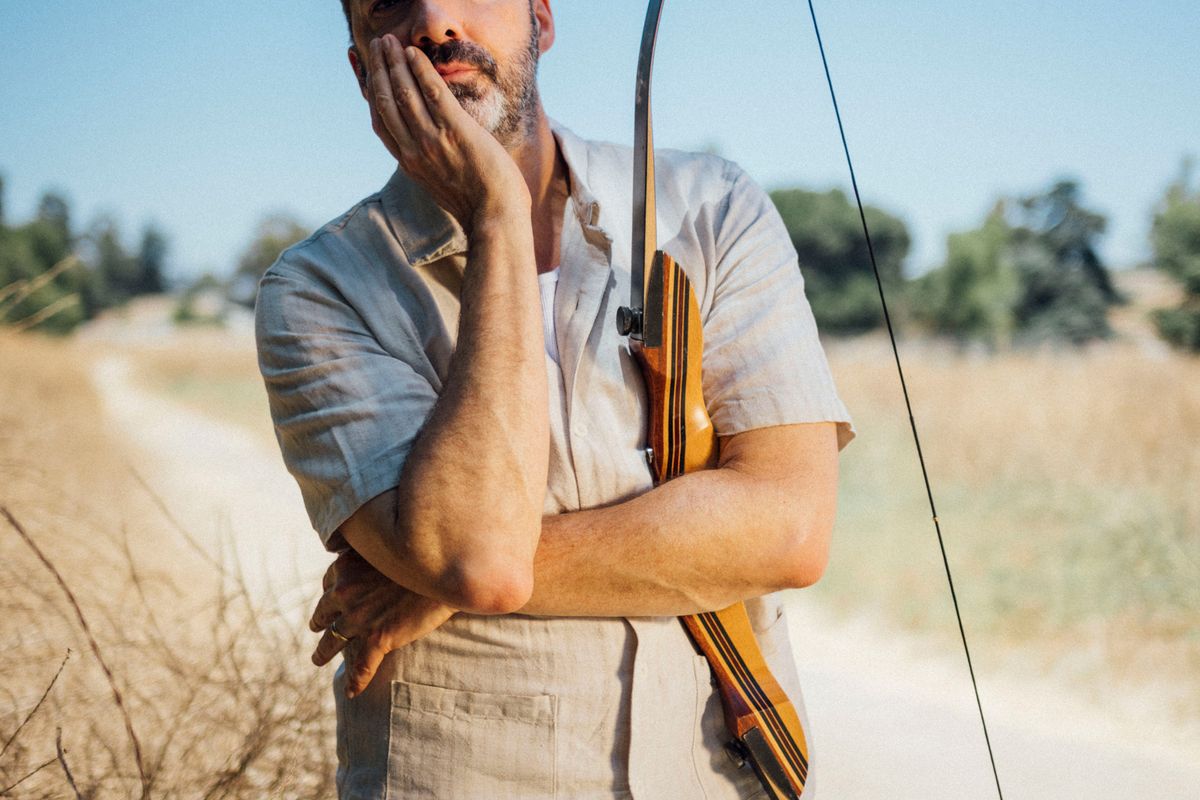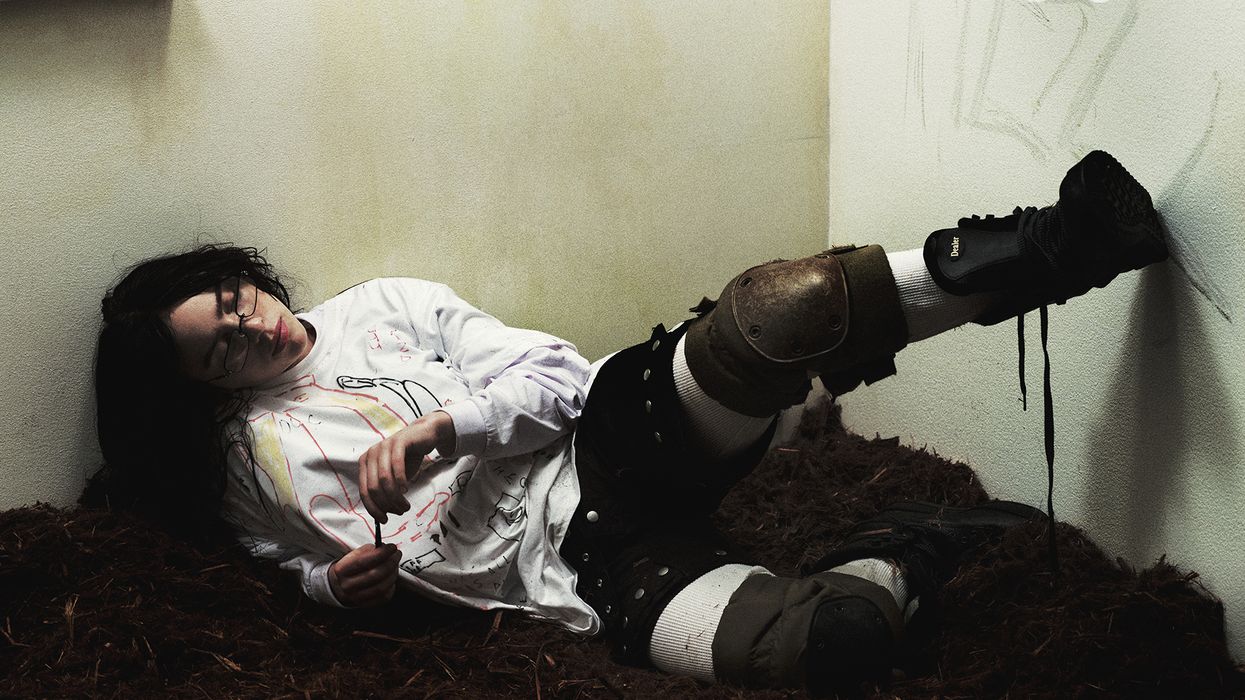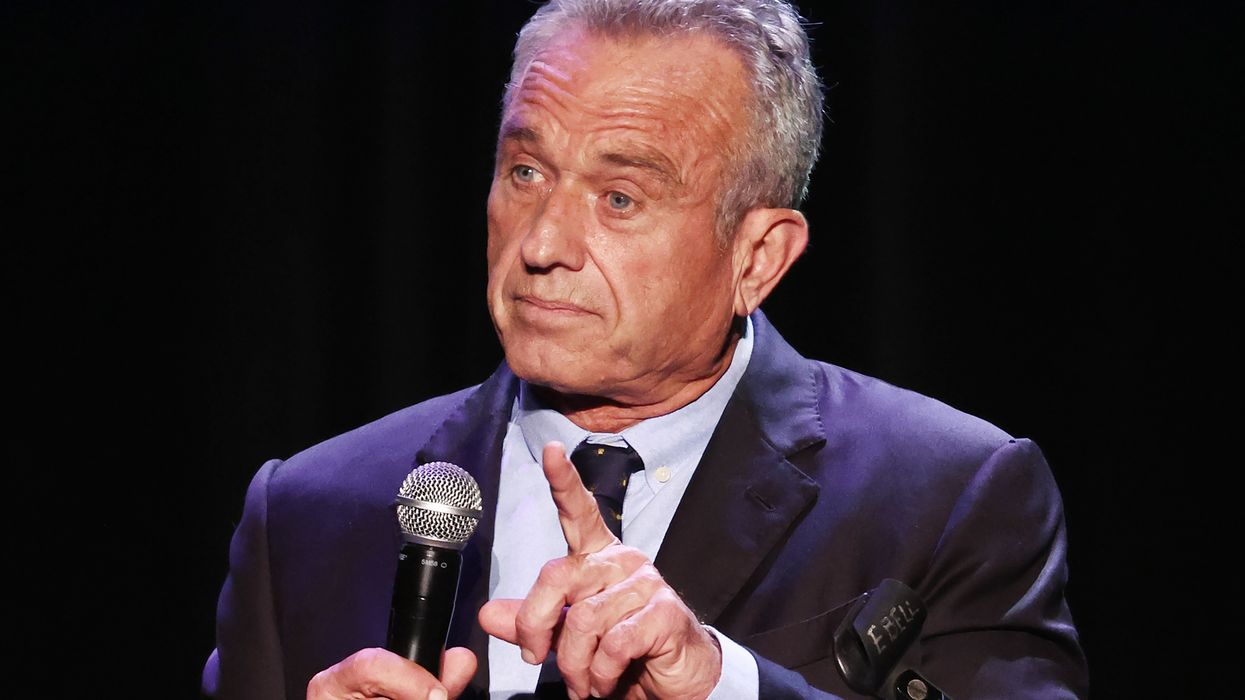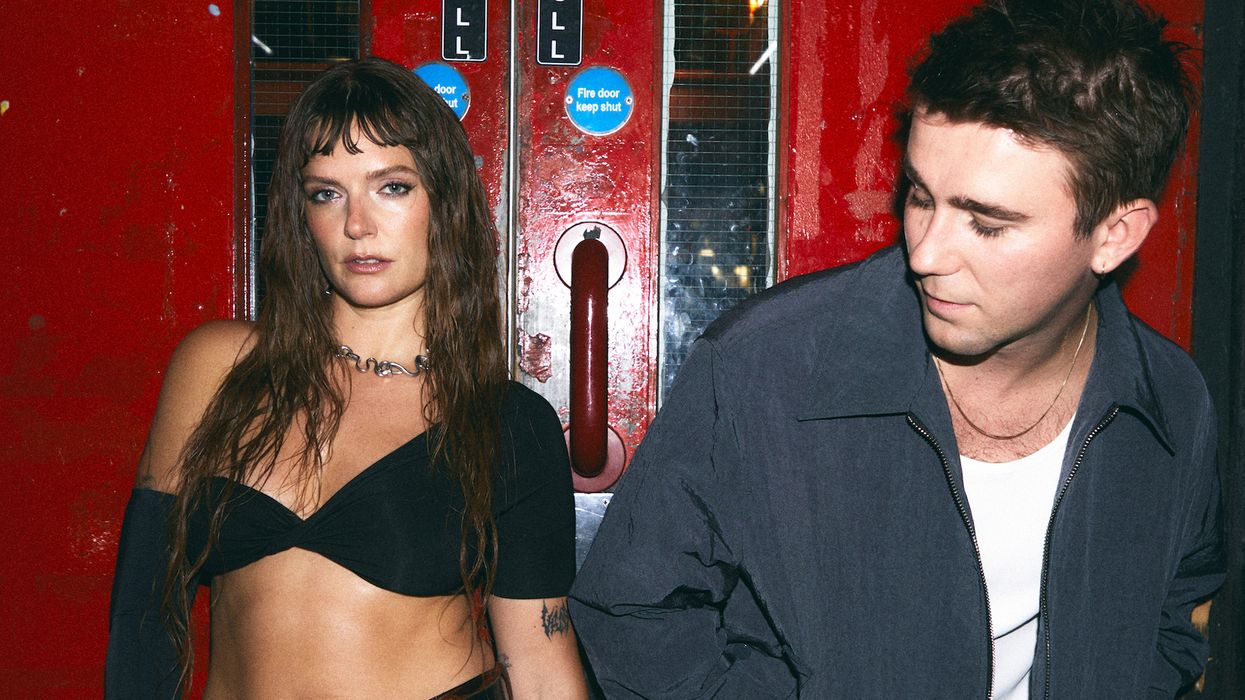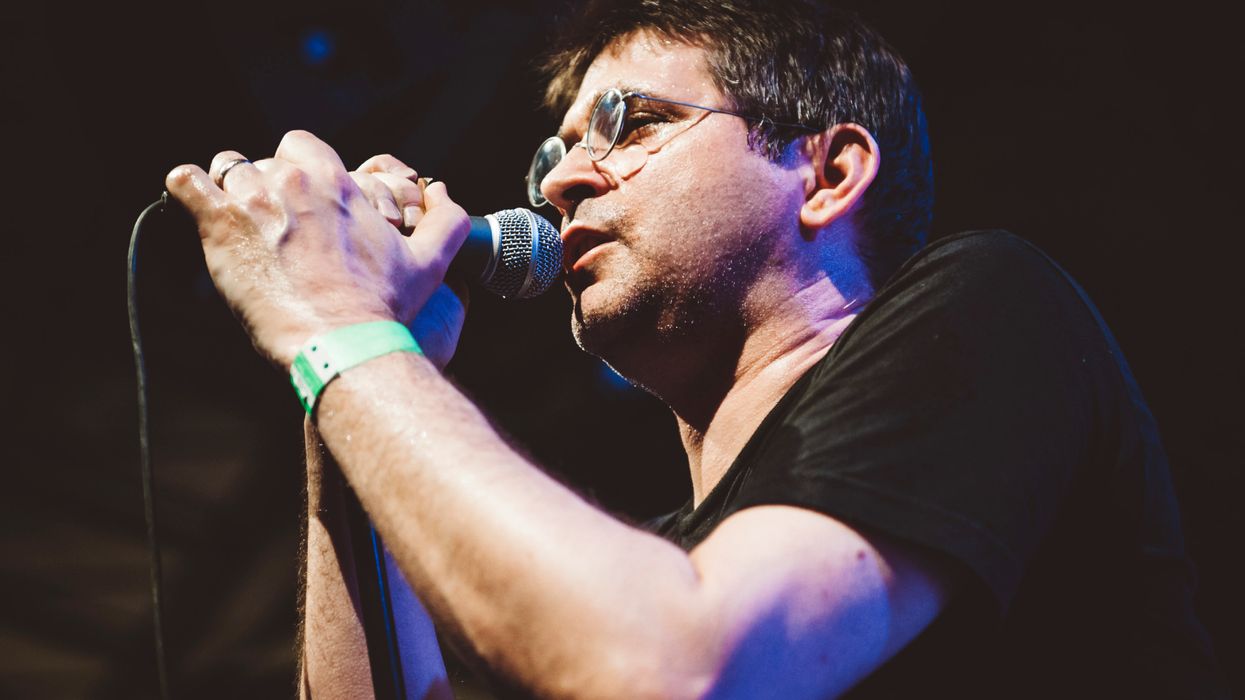There is perhaps no brow in show business better at furrowing than Tony Hale’s. It creates a look of consternation any fan of Arrested Development or Veep would instantly recognize, a mixture of discomfort, dread, and confusion. It’s the look on Hale’s face as he clambers out of a hulking Cadillac Escalade on a recent sunny afternoon in the San Fernando Valley. The temperature is a blazing 90 degrees, but the heat isn’t what’s troubling him. It’s the car.
“I look,” Hale says as though he’s surprised he’s the one who just stepped out of the vehicle, “like a douchebag.”
He quickly (and needlessly) explains why he required a chauffeured SUV today: His family has only one car. Today his wife is using it, so he needed a ride here from the Burbank studio where he’d been doing voice work for an upcoming Disney animated series. He then apologizes for his voice, which sounds completely fine but which he says is raw from all the screaming he was doing during the recording session.
“It was actually really, really fun,” says Hale, who has voiced dozens of characters in animated shows and films. “I get to just kind of act like an idiot the whole time.”
Hale has been driven here — like some kind of Hollywood bigshot! — to take an archery lesson inspired by his new medieval-times Netflix limited series, The Decameron. Very loosely based on the seminal 14th-century book, the show follows a group of nobles and their servants after they hole up in an Italian country villa in an attempt to avoid the Black Death. Hale plays Sirisco, the steward of the manor whom viewers first meet as he frantically buries his master, who died of the plague soon after inviting everyone to the villa — including a woman he had never met but was engaged to marry. Sirisco knows that servants with dead masters don’t get to live in beautiful country villas, so he must somehow keep the death a secret.
It’s the first of many times the ugliness of wealth inequality is pilloried. Other modern political issues are mirrored by ye olde timey problems — the corruption of organized religion, unchecked militarism, the absurd failures of the health care system — and the plague itself is an obvious stand-in for Covid. But the cruelty and callousness of the lordly class infuses it all.
“The idea that these privileged people think they can flee to a villa and escape the plague, like it’s not going to get past the gates?” Hale says with a derisive laugh. “‘We can just stay here, and have a great time, and the plague doesn’t exist.’ No, hon, it doesn’t work that way.”
There is a fair amount of arrow shooting over the course of the show’s eight episodes, but Sirisco is always on the wrong end of it. So Hale has never wielded a bow. (His 18-year-old daughter, Loy, did give him some pointers based on her own archery lessons at camp.) Before we begin, Hale pulls a hooded brown robe out of his bag, explaining that he brought it just in case there’s a Robin Hood vibe going on during the post-lesson photo shoot. He wore the robe earlier this year while playing Qui-Gon Jinn in a staged reading of The Phantom Menace. (The reading, which also featured Bobby Moynihan, Larraine Newman, Tawny Newsome, and a bunch of other funny people, is on YouTube and arguably more entertaining than the actual film.)
Our teacher today at Area Archery is Cyril, a friendly Russian-born archer who received his U.S. citizenship only days before, and who looks and sounds kind of like David Harbour in Black Widow. After showing us the proper stance, he gets right down to business.
“Our first rule — no killing,” Cyril says. “Never point arrows at anyone alive. I know that is obvious, but it happens a lot, and it is very scary and very dangerous. The next thing is, we have two eyes, which is incredible, I love having two eyes. How about you?”
“Yes, yes, yes,” Hale says.
Cyril demonstrates the right and wrong ways to pull arrows out of a quiver, to bring arrows up to the bow, and to pull arrows out of a target. As he does so, he explains how doing all of those things incorrectly can lead — and has led — to gruesome eye injuries.
“Bad, bad, bad,” Hale says.
Never dry fire. Don’t grip the bow too tightly. Three fingers on the string: index above the arrow, middle, and ring below. Pinky and thumb should meet behind the string. Don’t touch the feathers. Pull your hand back to your face. Keep your elbow up. Aim, but not too much or for too long.
“Great, great, great,” Hale says.
Our targets are mounted on hay bales 30 feet away, and our first arrows hit the hay bales, but not the actual targets. “This is effing terrifying,” Hale says after the thwack! of the string launches his first arrow. But he’s into it. After a dozen more volleys, we’re hitting the targets more often than not, and we even score some bull’s-eyes. Each time it happens, Hale lets out a loud, “Ohhhh!” or “Heeeey!” or “That’s cooool!”
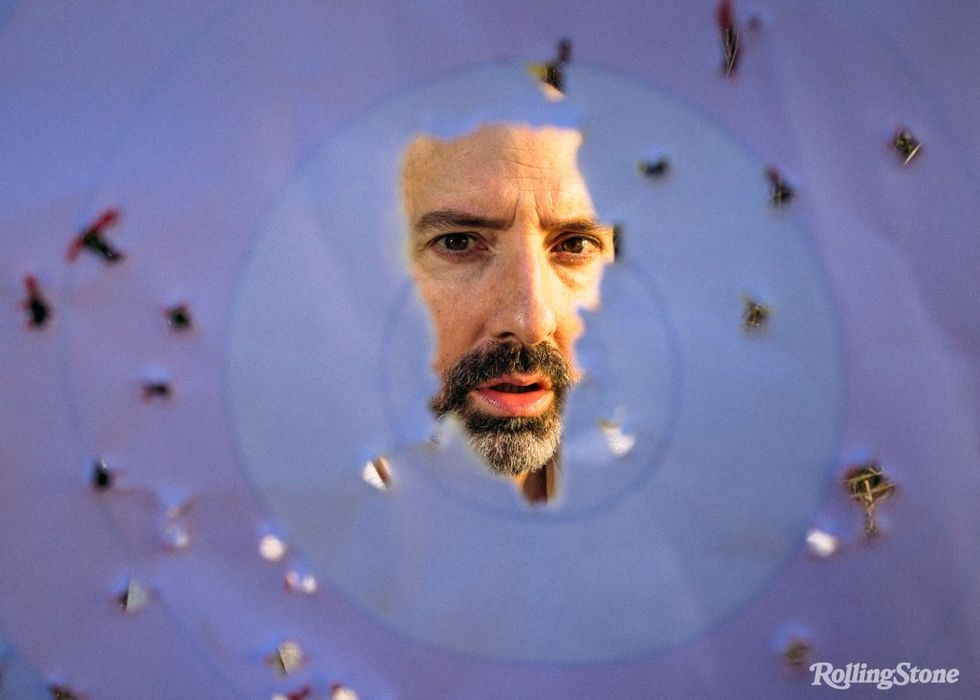
Imagine another actor — any other actor — saying the things Hale is saying. You would assume that person was being a petulant dick. But if you’ve watched Arrested Development or Veep — or if you’re familiar with Hale’s real-life reputation — you know that’s not what was happening. In the moment, Hale wasn’t so different from Buster Bluth or Gary Walsh, earnestly and guilelessly expressing anticipation and joy.
There’s a lot of Hale in the anxious characters he plays. His father was an officer in the Army, and the family — Hale has a brother and a sister — moved seven times by the time he was in seventh grade, which was when they finally settled in Tallahassee, Florida. (Hale, who turns 54 in September, says he has virtually no memory of his life before then.) There were addiction issues in the family, and Hale suffered panic attacks. He now draws on those feelings when he plays anxious characters — including his portrayal of literal Fear in Inside Out 2 — but there’s at least one important difference between Hale and the characters he plays.
“I’ve had a lot of therapy,” he says. “I’m still in therapy, I’ve always been in some kind of therapy, I love therapy. I now have a lot of tools to better deal with things. What’s cool about going through stuff in your life is being able to use it in the future to make people laugh. Using the pain of life to create joy. It’s a surreal process, but very powerful.”
He’s also able to use his pain to create pain. At one point in The Decameron, Sirisco, having been heartbroken, humiliated, and/or ignored by the nobles, storms out of the villa. He stumbles upon a quiet lake and decides to go for a swim. After nuding up (Hale is coy about whether the bare ass onscreen is his or a body double’s), Sirisco jumps in. He’s happy for a moment, but the joy quickly seeps out of him. He dips his head below the water and just … floats. It’s unclear whether he plans to ever emerge from the pond, and in that moment, with only his eyes, Hale conveys a lifetime of loss, sorrow, loneliness, and fear. It’s mesmerizing and brutal.
In real life, Hale has a number of ways to calm what he describes as the “circus in his brain.” Incredibly, he manages to find driving in L.A. traffic an almost peaceful respite during which he talks to and voice-texts people or maybe sings along to some Taylor Swift. He’s also been known to bake. While in Vancouver filming The Mysterious Benedict Society in 2020, Hale created a pandemic pod with co-star Kristen Schaal and her family. For Thanksgiving, Hale baked an apple crumble pie — but Schaal had to cancel because of an exposure to someone who tested positive. Hale ate the pie by himself.
Plus, there are arts and crafts. As wrap gifts for the Decameron cast and crew, Hale sewed and painted 30 rope bowls, which meant bringing a sewing machine with him to the set in Rome. Next he plans to learn how to bend wood in order to make wooden bowls.
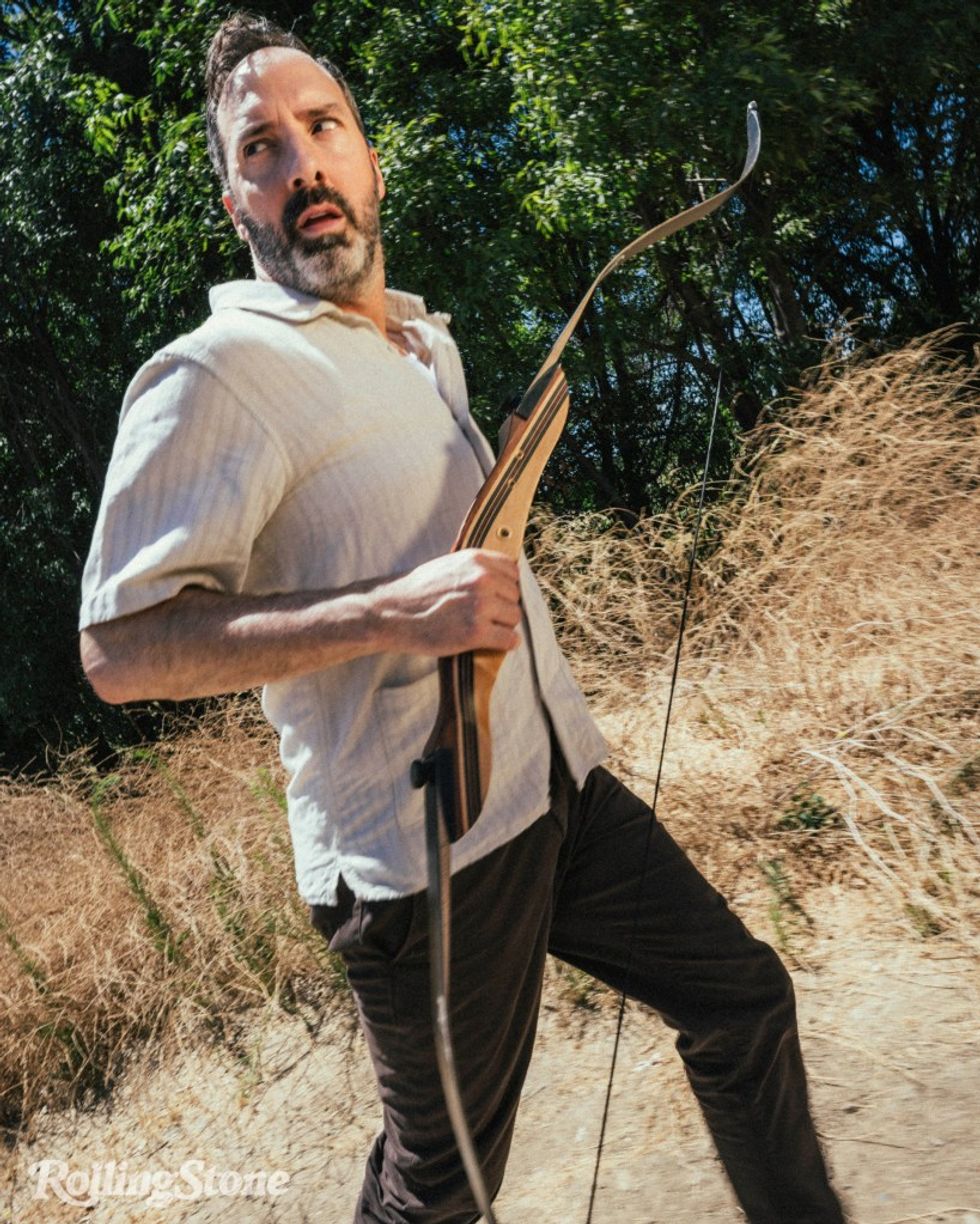
While Tony Hale is as Tony Hale as any fan could possibly hope, he freely acknowledges he has demons. But he doesn’t seem to fight those demons so much as … bake them an apple crumble cake or make them a rope bowl as an apology for denying them any power over him. His Christian faith, which is deeply important to him, aids and guides him. But he doesn’t see it as a panacea.
“I went through my own crisis of faith,” he admits. “Knowing there’s a higher power as I’ve gone through difficulties has been an incredible source of comfort for me, but there are many times when I’m screaming at him, or crying at him, and I don’t understand. You have to be comfortable with the uncertainty. Now that I’m older, there’s a peace to sitting in the tension of the unanswered question.”
He immediately relates that feeling to politics. Hale says he has family and friends who believe very different things, and he wishes they could sit in the tension with each other, talking and asking questions rather than being at silent odds. Though he shies away from talking about his own politics, he admits his own strong beliefs can make it difficult for him to engage as well.
Unfortunately, as a Veep alumnus, it’s not currently an option for Hale to avoid political discussions because of the cultural stampede to compare our current moment to the show. In an early season, the president decides not to run for reelection, opening the door for the galactically flawed Vice President Selina Meyer. (Hale played her galactically codependent assistant.) When President Joe Biden announced that he was dropping out of the presidential race and Vice President Kamala Harris became the immediate frontrunner, Veep streaming surged more than 300 percent. Creator Armando Iannucci wrote a New York Times op-ed about the frightening absurdity of comparing the show to reality, and Hale very much agrees.
“I definitely don’t see it as a direct parallel,” he says. “The thought of anyone comparing Kamala — there’s no comparison. It just seems like fodder for social media.”
As our lesson winds down, Cyril, who is an excellent teacher, pauses. “You know, teaching archery is like acting and directing,” he says. What happens next is textbook L.A.: Cyril tells Hale about a screenplay he has written, and while explaining the plot, he informs Hale that there’s a character Hale would be perfect for. He then hands a beautifully bound copy of the script to Hale, who is (genuinely) delighted by the interaction.
Just as Cyril is delighted by Hale’s progress today. “You’re very natural,” he tells the actor. “You’re doing great!”
“Well,” Hale responds, “that’s nice to hear.”
Production Credits
Photographic Assistance: KEEGAN HOLDEN
